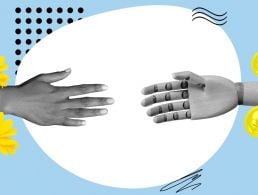Dr Valerie Young, an expert on imposter syndrome, speaks to Siliconrepublic.com about managing feelings of inadequacy while working from home.
Most people in the modern workplace are familiar with the concept of imposter syndrome – the feeling of being inadequate at your job or that you’ll be ‘found out’ for not being good enough despite your skills and successes.
Throughout her career, Dr Valerie Young has spoken about imposter syndrome to tens of thousands of executives, professionals, students and university staff around the world. She is also the author of an award-winning book on the topic, The Secret Thoughts of Successful Women.
But what first piqued her interest in this area? When she was in college in the 1980s, Young heard about imposter syndrome for the first time. Her classmates were reading from an article by psychologists Dr Pauline Rose Clance and Dr Suzanne Imes about imposter syndrome in high-achieving women. Clance and Imes had defined the concept as a feeling of “phoniness in people who believe that they are not intelligent, capable or creative despite evidence of high achievement”.
Young identified with everything the authors had written, but was astounded to find that the other students in the room – and even her professor – were nodding along too.
That pivotal day led Young to follow in the footsteps of Clance and Imes. Her own research led her to highlight specific subgroups that exist within the syndrome. ‘The Perfectionist’, for example, sets such high expectations for themself that even the smallest mistakes make them feel like a failure. ‘The Soloist’ doesn’t like to ask for help; when they do, they feel like a fraud.
‘When you’re using Zoom and Microsoft Teams … I think for some people there’s greater self-consciousness’
– DR VALERIE YOUNG
People can identify with one or many of these subgroups, according to Young. And now that many of us have pivoted to working from home or have adjusted to new ways of doing our jobs, feelings of inadequacy may be on the rise.
“One of the at-risk groups, if you will, are people who work alone,” Young tells Siliconrepublic.com. “People in certain fields are also more susceptible; people in creative fields – writing, design, acting – and people in very information-dense, rapidly changing fields like technology.
“I think when you’re working in isolation, it’s much easier to get into your head. When you’re using Zoom and Microsoft Teams and platforms, when you’re having these virtual meetings, I think for some people there’s greater self-consciousness. Seeing ourselves constantly is having an impact.”
Loved speaking on Impostor syndrome to the 600 amazing young women. They will help change the world! @Scientista_Talk #SciSymp19 pic.twitter.com/zi2bGj1PjL
— ValerieYoung (@ValerieYoung) March 31, 2019
How leaders can help
Some estimates suggest that up to 70pc of people have experienced imposter syndrome at some stage in their career. So what makes someone with imposter syndrome react differently?
“People who feel like imposters are no less intelligent, capable and competent than people who don’t feel like imposters,” Young explains. “It’s just that in the exact same situation that triggers an imposter feeling, people who don’t feel like imposters are thinking different thoughts.”
‘It’s not about knowing everything. It’s about not knowing with confidence’
– DR VALERIE YOUNG
People who feel like imposters, she says, can treat failure, mistakes, criticism and fear differently.
“If someone receives a text and it sounds like they’re being criticised, if it’s critical or very abrupt and we already feel like an imposter, we’re often really wounded by even constructive criticism.
“And so, that’s just going to heighten imposter feelings if you do get what feels like a critical message, even if it wasn’t intended that way.”
If this happens to you, Young’s advice is to try and take a step back and become more consciously aware of your thought process. She says you should ask yourself: “What is the conversation going on in my head right now? How can I reframe it in a way that someone who doesn’t feel like an imposter might? What’s another way to look at this?”
An example she gives is being told you’ll be taking on a project that feels “beyond you” by text, email or in a virtual meeting. You might be doubting your ability to do it. This is where you can try to reframe your thoughts.
“So think about the conversation going on your head, which might be, ‘Oh my God, I have no idea what I’m doing’, versus reframing that to think, ‘Well, you know, I’ve never done this before. But I’m really going to learn a lot’.”
Another example is receiving critical feedback. If somebody writes to you and says your work was inadequate, what people with imposter syndrome may hear is ‘I’m inadequate’. Young explains that, in these cases, it’s important that we separate fact from our feelings and remember that we’re entitled to an ‘off day’ where we don’t understand everything or have to ask questions.
“It’s not about knowing everything. It’s about not knowing with confidence,” Young says.
It’s also about trying to see feedback as a gift. Sometimes, people are afraid to offer their honest feedback in case it makes their colleague or peer feel bad. But this doesn’t help anybody in the long term, Young explains. Instead, those giving feedback should try to compliment the person and frame their feedback as, ‘Let me tell you a couple of ways you could make this stronger’.
Look at imposter syndrome like sports
A useful way of looking at feelings of imposter syndrome, Young says, is thinking about them in terms of a sports mentality. “When you think about sports, we understand somebody is going to win and somebody’s going to lose. But when it comes to ourselves, we’re just very hard on ourselves if it doesn’t turn out well; if we don’t get the job or the project.
“But, you know, when you’re the losing team, you can be crushingly disappointed. You can be sitting on the sidelines crying in your towel. But you’re not ashamed. The only time you feel shame is if you didn’t try – then shame on you. But what people in the sports world do is they go watch the game tape. They look at what happened, what they could have done differently, what they could do better next time. They get more coaching or training or mentoring or practise and they say, ‘We’ll get them next time’.
Dr Valerie Young speaking at TED Talent Search 2017 in New York. Image: Anyssa Samari/TED
“I’m not saying you’re happy if it doesn’t go well. You know, you get up and make a presentation and you bomb or you forget or you’re rambling – you’re going to be crushingly disappointed. But if you tried your best and you still didn’t do well, that sucks. You have a good cry and then you go out there and practise and go try again.
“The second time you do something is going to be better than the first. The tenth time is going to be better than the fifth.”
‘It’s all relative’
Imposter syndrome is not restricted by age or seniority level, according to Young. She remembers a time she was giving a talk at Facebook. When she asked how many people had been the youngest in a work situation and felt inadequate because of it, every young person raised their hand. When she asked how many people felt inadequate because they were that bit older, every person over the age of 35 raised their hand.
“So, you know, it’s all relative,” she says. “I think you could argue that as you get older, you gain confidence. But that’s not true for everyone. The goal for me is not to never feel like an imposter again; the goal is to have the insight and the tools and the information to talk yourself down faster.”
Sometimes people say that you should embrace your imposter syndrome because it means you’re in a growth phase and that you’re learning, Young says. “They say, you know, that it’s good that you feel like an imposter because it means you’re humble and you’re not this arrogant jerk.
“But I think it’s a false choice – I can be an arrogant jerk who’s full of myself or I can feel like an imposter? I think there’s a big space in the middle where you can still be humble but not have imposter feelings, because there’s too much baggage.
“I think what really resonates with a lot of people is that it’s not all about them. Everybody loses when bright people play small or burn out because they’re trying to outrun the ‘no talent police’. But really, it kind of goes beyond them. The only way to stop feeling like an imposter is to stop thinking like an imposter.”




